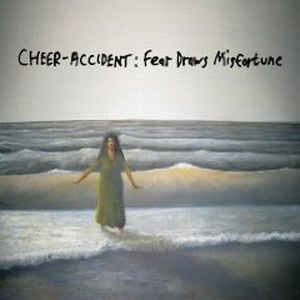
This was the back end of a two-night stand at the 4,200 capacity venue. Quite a jump from the Edinburgh Fringe Festival where Jemaine Clements and Bret McKenzie made their mark earlier in the decade.
Of course, having an HBO TV show and the resulting viral video from the Conchords’ many fine songs has made them a gigantic cult act. Despite the elevation to larger venues, Jemaine and Bret have made only one concession to playing to so many people -- accompaniment by the New Zealand Symphony, comprised of a single multi-instrumentalist. Jemaine explained that there were budgetary restrictions that caused cutbacks in the Symphony.
The Conchords show, as Bret stated early on, consisted of songs and talking, sometimes the Conchords playing consecutive songs and sometimes “talking and talking” which, he noted, would be harder to distinguish. The mix of dimwittedness and cleverness that is the essence of the television show clearly derived from the stage act. While I’m sure that a great deal of the patter between Jemaine and Bret is planned out, they are so relaxed on stage, I could not tell you where the rehearsed dialogue ended and the ad-libs began. Well, there’s one exception to that -- these comedy club vets had no problem making sport of all of the audience members who yelled out things to the Kiwis.
The show got off to a great start, as Jemaine and Bret donned their cheesy cardboard robot heads and electro-popped to “Too Many Dicks on the Dancefloor”. From there, they played a mix of songs from the first two seasons of the show, with a few other songs blended in. This confirmed that the second season songs were not as consistent as those from the first season. A few of the second season songs are a bit stilted, like “Let’s Get Freaky” (I may have the title wrong), though the second season still yielded some gems, like “Sugar Lumps”, which they closed the set with, edging to the lip of the stage to thrust their junk into any digital or cell phone cameras near the front.
Meanwhile, the first season classics sounded, well, classic. Even “Mutha’uckas”, which I think is one of their more contrived songs, came to life on stage. These songs have been in the Conchords set for so long, they often embellished them with little asides that made them even better. This was especially evident on “Business Time” and “Robots”. Other highlights included “The Most Beautiful Girl (In the Room)” and “Foux du Fafa”.
One thing that the Conchords don’t get enough credit for is how much they clearly love the music they spoof, and the wide variety of the music they love. Certainly, their facility with R & B and rap is quite evident, but they showed a totally different side on a Johnny Cash styled country ballad about a totally evil dude named Stana -- Satan with the letters scrambled (“Santa was already taken,” Jemaine explained). It was a hilarious tune that playfully tweaked yet another genre.
Jemaine and Bret also excelled on a duet where Bret played a gal who runs into a fellow and begins to reminisce...about a day he doesn’t remember. Jemaine’s attempts to suss out what the hell the gal is talking about were quite funny.
The show flagged a bit in the middle, much in the same way that some eps of the show are merely amusing rather than hilarious. But there was plenty of laughs throughout and Bret and Jemaine started and ended very strong.
A quick tip of the hat to opener Eugene Mirman, who plays the landlord on the show. His too brief stand up set was hilarious, ending with a long bit about his dealings with Delta Airlines after the his luggage was lost. When he read from his letter to Delta and noted that “now I know what it feels like to be black in 1955" he ensured that I’ll go see him again. As a bonus, John Wesley Harding came out to sing a song based on Mirman’s Delta riff, which provided a nice musical segueway to the Conchords’ set.
All in all, a smashing evening.












